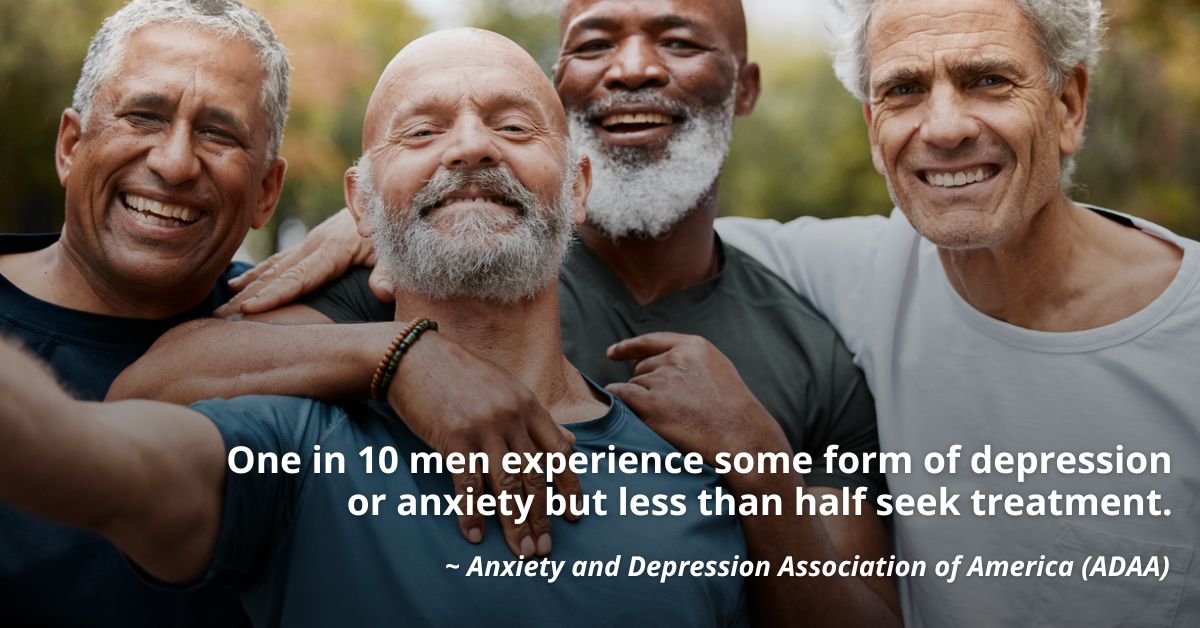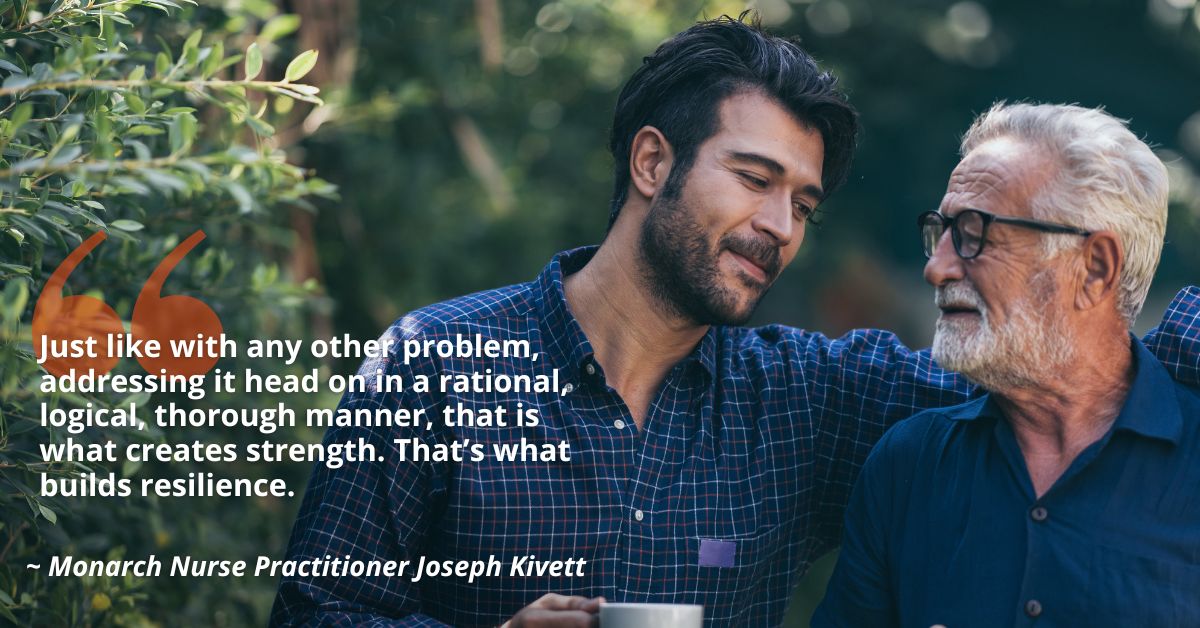Mental Health Care Important Part of Overall Men’s Health
A variety of reasons can contribute to men feeling reluctant to seek mental health support. Clinicians, including professionals at Monarch, are working to reduce the stigma men might experience reaching out for help.
Mental Health America (MHA), a community-based nonprofit dedicated to addressing the needs of people living with mental illness, reports that men are less likely than women to seek help for depression, substance use disorders and stressful life events due to social norms, reluctance to talk and downplaying symptoms.
Serving people in need through Monarch’s behavioral health outpatient clinics, Nurse Practitioners Joseph Kivett, PMHNP, and Richard Agyekum Addo, DNP, PMHNP-BC, often come face to face with men hesitant to seek help even if mental health issues or substance use disorders are causing problems in their lives.

One reason, Joseph explains, is that men may possess a limited emotional awareness and vocabulary as well as a “simple lack of experience in identifying and expressing oneself.” Part of a clinician’s role is to break down barriers that make it uncomfortable or difficult for someone to describe how they feel and in turn manage their emotions.
Joseph points out that when a person experiences a physical problem, they typically seek medical treatment, however struggling with a mental health issue often doesn’t receive the same attention. “For some reason, in regard to mental health, it is something that doesn’t warrant that type of attention, respect, treatment and seeking help is seen as making you a weaker, less capable person,” he explains. “Just like with any other problem, addressing it head on in a rational, logical, thorough manner, that is what creates strength. That’s what builds resilience.”
When men avoid a mental health issue, it may result in extreme or severe situations. “When you continue to ignore the problem and it gets so severe that it requires such an intense intervention like involving the police, it can be really humiliating and bring a lot of shame,” Joseph notes.
Richard says men may see reaching out for mental health support negatively because of the stereotype associated with it. They may also be hesitant because of the belief that medication prescribed for mental health diagnoses may affect them physically such as in sexual performance. He also notes that in the African American culture asking for mental health help has historically been considered as a sign of weakness.
He adds that employment struggles due to being released after incarceration or other circumstances, family-related issues or homelessness can cause mental health problems.
Most of the patients that both Joseph and Richard serve are through a referral from their primary care physician or through follow-up care after receiving inpatient hospital care or from substance use disorders.
At Monarch, individuals seeking mental health support complete a clinical assessment to help providers determine an evidence-based treatment plan and assist the person receiving help establish goals. Treatment can include medication management, individual or group therapy which can include discovering coping skills to assist in managing emotions, as well as ensuring that food and housing needs are being met.
Both clinicians agree that managing mental health can include healthy sleep, exercise and nutrition habits. “Managing stress gives the patient a sense of ownership and makes them more active in their care rather than being told what to do and helping them to open up,” notes Richard.

What advice do Joseph and Richard have for men who would like to reach out for mental health support but are reluctant?
“What do you have to lose? Getting to know yourself is one of the most beneficial and rewarding paths that a person can go on rather than just living in place of being unaware,” says Joseph.
Seeking support can provide an awareness about mental health resources available and if the individual would benefit from a team approach such as the Assertive Community Treatment Team (ACTT), a community-based group of medical, behavioral health and rehabilitation professionals working together for people with severe and persistent mental illness. “COVID did help a lot with making people more aware of the importance of mental health but the stigmatization is still there,” Richard states.
Both note that an individual’s support network can assist when their loved one seeks mental health services by being patient and empathetic through the process, as well as talking about the care they are receiving.
For more information about Monarch services, visit here or call (866) 272-7826.

~ Infographic reprinted from Mental Health America
Posted on: Wednesday May 31, 2023
